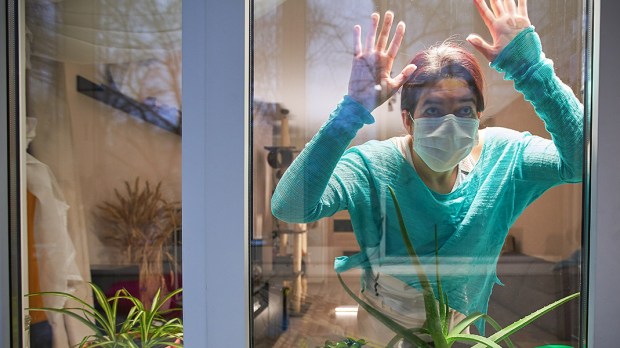For all of us, living through a pandemic is totally new. So it brings with it the emotions that come with unfamiliar experiences: fear, uncertainty, agitation, nervousness. The fact that we receive confusing information—so variable at times, depending on who you listen to and what decisions the authorities are making—doesn’t help us adapt to what’s going on either.
One of the most worrying consequences for us, however, is that mistrust of others is becoming a new way of life. This can be seen in many situations, and it’s important to watch our attitude when facing those situations, so as not to fall into dehumanizing others or justifying selfish behavior.
What kind of behavior can mistrust lead to?
Egoism: Faced with the fear of a shortage of basic necessities, in the first weeks of confinement it seemed as if people in many places were engaged in a kind of competition to guarantee their own survival, buying large amounts of essential products, even ones they already had in their homes.
While in principle it’s healthy to have a survival instinct, if we’re not careful it can turn into a generalized attitude of selfishness that doesn’t take into account the needs of others, such as those who cannot be at the supermarket first thing in the morning. If we’ve fallen into that kind of selfish attitude, we can take advantage of the re-opening of more businesses and activities to re-open our hearts as well.
Suspicion: We might come to see everything and everyone as a threat. Meeting a neighbor in the elevator has become an undesirable experience. Although our instinct of self-preservation may do its job and we may take the precaution of keeping our distance and taking the elevator in turns, we cannot allow these practical measures to lead us to look at the people around us as a danger. They’re not enemies to be avoided, but people whom we can care for by taking precautions.
Lack of empathy and verbal violence: We’ve all seen people out on the streets, even during the strictest part of the lockdown. We usually don’t know why they’re there: They may need to be out for an important reason such as to buy food or medicine, to work as caretakers of the elderly or in healthcare, etc. But some people have gone so far as to verbally attack others in response to behavior that they did not feel was appropriate in the situation. While it’s true that not everyone has respected the rules, resorting to insults doesn’t help us maintain the psychological balance we need to deal with the situation in the best way.
Mistrust vs. respect
It is important to remember that, in view of the precautions we’ve been taking to prevent the spread of the virus—and will continue to take in varying degrees as many locations re-open—we’re not acting only on our own behalf, but on behalf of everyone. Rather than being suspicious of our neighbors and people around us, it’s much more constructive and healthy to think about the best way to love them under the circumstances. Although it may seem like a minor change in attitude, the way we react will be completely different.
When our actions are based on the suspicion that other people “can infect me,” it’s easier for our social distancing to be accompanied by nasty looks, repulsion, selfishness, competition, scorn, etc. By contrast, when we opt to take measures so we can “protect ourselves and others,” our behavior is calmer. We’re more disposed to give others preference, we look at others in a different light, and we treat each other like people who are looking out for each other.
The situation isn’t easy, and we are all in a continuous learning process, whether we’re still under full quarantine or transitioning to a “new normal.” It’s worthwhile, however, to review the attitudes we adopt and why we adopt them. Let’s remember that what really provides emotional and psychological stability is putting love and respect for others and for oneself above the exaggerated and sometimes irrational emotions we feel.

Read more:
3 Guidelines for parents on socializing as lockdowns are lifting

Read more:
Isolation and quarantine: What psychological phase are you in?

